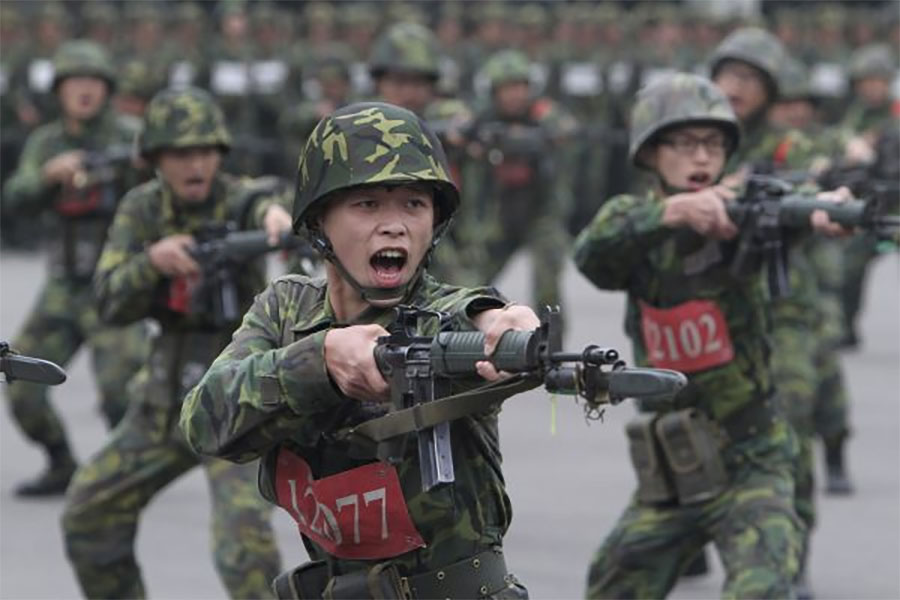Photo Credit: Getty Images
The prospect of war between China and Taiwan holds profound global consequences, especially in economic and geopolitical spheres. As tensions rise, particularly in light of China's aggressive military exercises and growing influence in the region, the possibility of a full-scale conflict is no longer a distant scenario. With both countries prepared for military escalation, the world is closely watching the potential fallout of such an event.
At the heart of the looming crisis lies Taiwan's critical role in global supply chains. Taiwan Semiconductor Manufacturing Company (TSMC) produces approximately 90% of the world's most advanced computer chips, essential for industries ranging from automobiles to medical devices.
. A disruption in Taiwan's semiconductor production, whether from direct military action or a blockade, could devastate the global economy. The U.S. and European countries would face severe shortages, and countries relying on Taiwan's chips might be left in an economic standstill. Should TSMC fall under China's control, Beijing would not only gain a significant economic advantage but could also dominate the future development of technologies like artificial intelligence.
China's military capabilities pose a major challenge. While a full invasion remains a possibility by 2027, Beijing could opt for a less direct approach, such as imposing a maritime blockade or "quarantine" on Taiwan, using its vast coast guard to control access.
This tactic would mirror its behavior in the South China Sea, where China has sought to dominate key shipping lanes and disputed territories. These maneuvers, though less violent, would still disrupt Taiwan's economy and its global trading partners. The consequences would ripple through international markets, triggering an economic crisis potentially more severe than the disruptions caused by the COVID-19 pandemic.
In response, Taiwan has been preparing for conflict. Recent military simulations, including the island's first-ever tabletop exercise, have highlighted the nation's readiness for a potential confrontation. The government has mobilized resources to train over 50,000 volunteers for emergency situations, emphasizing the need for national resilience.
President Lai Ching-te has underscored the urgency of building Taiwan's defenses, viewing the growing threats from China as a direct challenge to regional stability. This preparation extends to civilian sectors, with Taiwan's government actively involving various sectors, from security services to the private sector, in national defense efforts.
As tensions mount, the U.S. faces its own set of challenges. Despite maintaining the "One China" policy, the U.S. has reaffirmed its commitment to preventing unilateral changes to Taiwan's status through force. However, with China's increasing military assertiveness and Taiwan's growing vulnerability, America's capacity to respond effectively in the event of a conflict remains uncertain. Experts warn that the U.S. must urgently develop contingency plans, particularly to mitigate the economic impacts of such a war.
The outbreak of war between China and Taiwan would not only reshape the geopolitical landscape but also thrust the world into an economic crisis. Taiwan's strategic importance and its central role in global manufacturing mean that the consequences of such a conflict would reach far beyond Asia.


